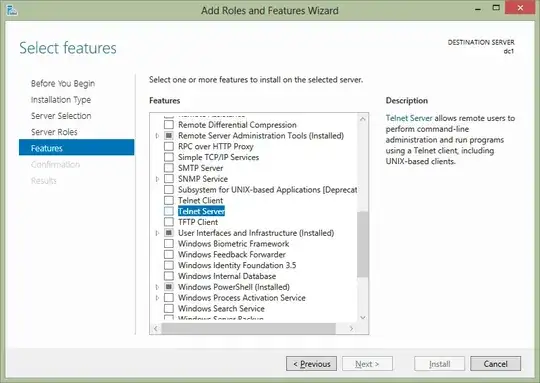Since you HAVE to use Telnet there are a couple of things that you can do to secure this.
I presume that you are running a recent version of Windows Server (2008 or better) and a recent version of the Windows client (Vista or better).
First, make sure that your server has the Windows Firewall running and limit the access to telnet on the proper interface, and to the proper machine that you will be running the client from.
Second, I would implement what is called "Domain Isolation" to IPSEC encrypt all traffic between your host and the server. If these systems are on a Windows domain you can use a GPO to configure that. If you are not you can implement local policies.
Mark Ringo
